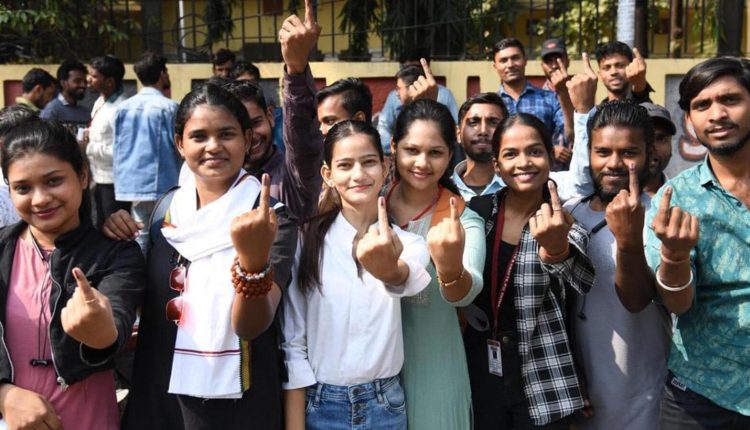The Janata Dal-United (JD-U) scripted a record win in the Patna Univerity students’ union (PUSU) elections on Saturday with the candidates backed by the party winning the seats of president, vice president, joint secretary and treasurer.
The lone seat of general secretary went to Akhil Bhartiya Vidyarthi Parishad (ABVP), while it was a setback for the Rashtriya Janata Dal (RJD)-backed candidates drawing a blank. The JD(U) won four of the five central panel seats – a first in PU history. The party’s best performance was in 2018 when it won the post of president for the first time.
The newly elected leaders of PUSU are: president- Anand Mohan (JDU-backed), vice-president- Ravikant (JDU backed)- general secretary-Vipul (BJP-backed), secretary- Sandhya (JDU-backed), treasurer- Ravikant (JDU backed).
Known as the cradle of politics, which blossomed during the students’ movement under Loknayak Jai Prakash Narayan, the Patna University polls were held after a gap of three years due to disruption caused by Covid-19 pandemic. This time it even witnessed bomb blasts and gun shots in the run up to the elections. Direct political interference was alleged against the recommendations of the Lyngdoh Committee, which prohibits election on party lines.
RJD chief Lalu Prasad Yadav, chief minister Nitish Kumar, BJP’s Ravi Shankar Prasad, Sushil Kumar Modi, Union minister Aswhini Choubey, former state Congress chiefs Ram Jatan Sinha and Anil Sharma, former minister Narendra Singh and many others have all been the products of PU student politics who went on to control state politics for over three decades.
Former Congress chief Ram Jatan Sinha became president of PUSU in 1971 defeating Lalu Prasad Yadav and handed over the baton to Prasad in 1973. BJP president JP Nadda is also a product of PU, an institution that has been trying for Central University status for decades.
After 1984, student union elections could not be held due to fear of violence. It was in 2012 that the then vice-chancellor (VC), Shambhu Nath Singh, successfully conducted elections to the students’ union.
After that, there was another gap of five years. Thanks to the initiative of former governor-cum-chancellor Satya Pal Malik, the universities in Bihar once again got duly-elected students’ unions in 2018. Elections to PUSU were held twice, i.e., on February 17 and December 5, the same year. The last election was held in 2019.
However, the biggest constraint for student union elections in the state has been lack of space for youth on the bigger platform of state politics in the last three decades. Jawaharlal Nehru University (JNU) students’ union former president Kanhaiya Kumar is the only student leader who, despite losing in the last Lok Sabha election, remains a visible face to have moved on from university politics to the larger stage.
A few years ago, the then JD-U vice president Prashant Kishor did try to create a buzz by taking keen interest in the Patna University polls to the extent of ruffling the ABVP, an arm of the BJP. He also took his experiment to LN Mithila University (Darbhanga) and Tilka Manjhi Bhagalpur University. But students’ politics did not move beyond that and none of the leaders could make an impact to create a space and acceptability in state politics, unlike their predecessors in the 1970s and 1980s.
Former PUSU president, Anil Sharma, who went on to become the Bihar Congress president, said lack of students’ movement in the state on important issues concerning them and society at large had been the biggest factor why student leaders could not emerge in the last four decades to add a whiff of fresh air to the mainstream politics.
With students’ politics taking a violent turn in the 1980s, the universities developed cold feet over holding elections after 1986 and it was only in 2010 on the Patna high court directive that the students’ union election could be held after a gap of two and a half decades on the basis of the Lyngdoh Committee recommendations.
Former PU professor and social activist Nawal Kishor Choudhary said that the students’ union elections should try to revive the old spirit. “It should not be reduced to crass politics, which is also against the recommendations of the Lyngdoh Committee. It should be a way of building climate for positive politics,” he added.


